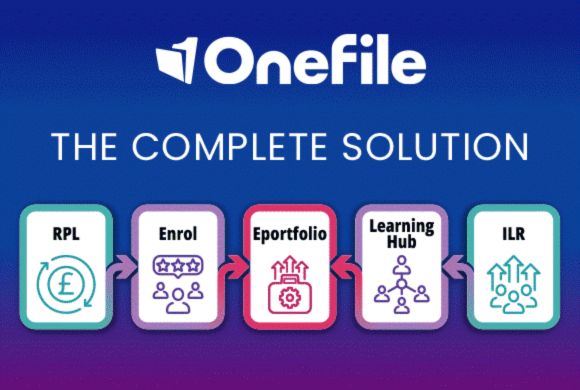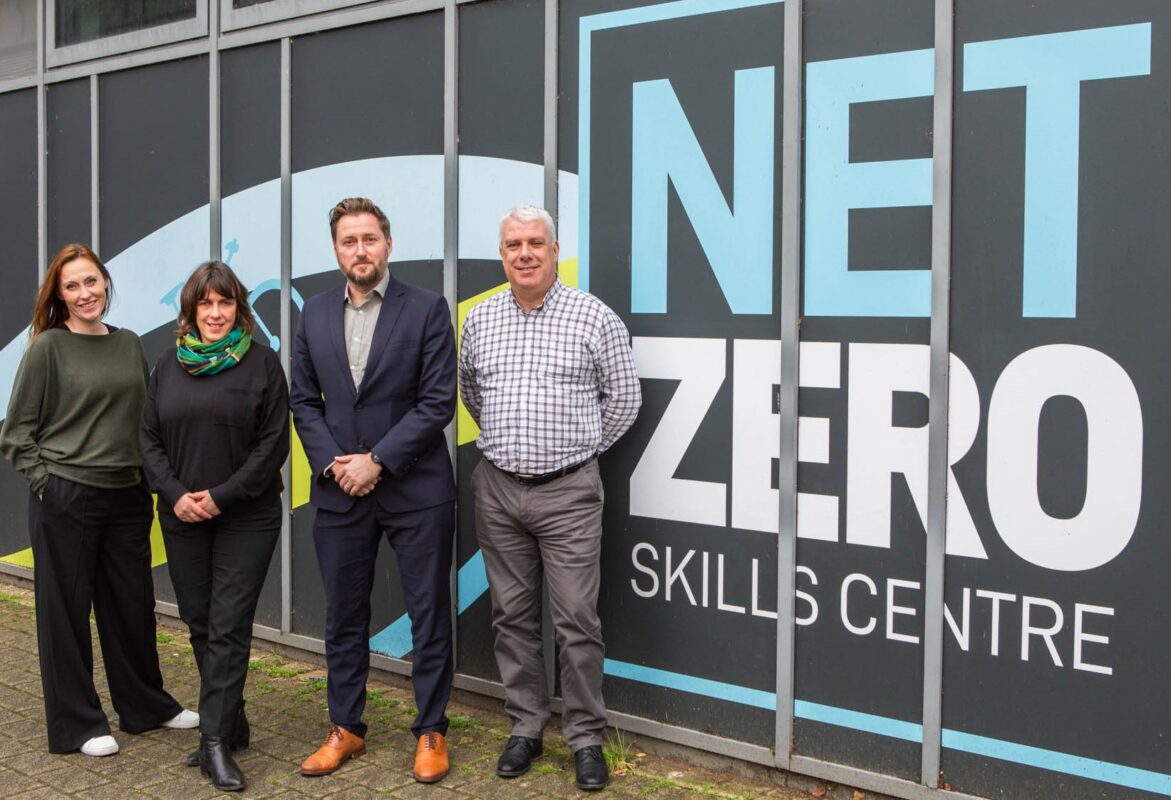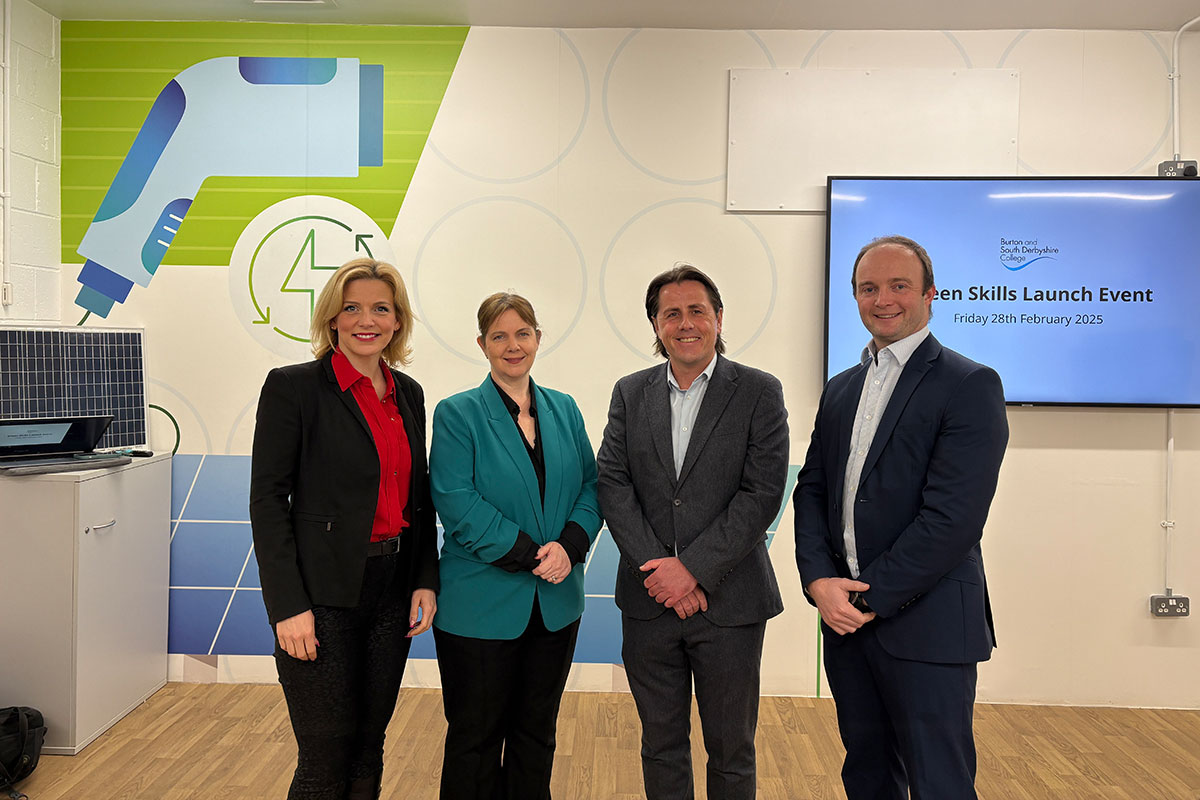Investing in Future Talent: Universities Must Lead the Revolution

UK higher education is facing a crisis.
Over the past decade, the world has changed at lightning pace. Every year brings a new challenge, pushing us to adapt into a ‘new normal’ – Brexit and Covid-19 notably have shuttered the UK higher education industry, impacting everything from academic collaboration to international student mobility. The disruptors to the higher education sector extend to technology, the growing skills gap and global competition, the need for digital literacy to be at the forefront of learning has never been more urgent.
It goes without saying that technology has rapidly transformed across every sector of the economy. According to Salesforce research, two-thirds of global GDP is forecast to be driven by digitised products and services by the end of 2022 – an opportunity for higher education providers not to miss. Current and prospective students expect to study degrees that will futureproof their careers while remaining relevant and savvy to the world around them. Technology has shifted the options open to potential students while, at the same time, expectations of learning experiences have changed, causing significant disruption to the sector.
These developments mean the world of higher education is facing a storm with many fronts. However, with every storm cloud comes a silver lining. The demand for higher education learning has never been stronger, and we must harness the opportunities all these challenges bring. The future of learning is hinged on universities innovating to meet the needs of their learners. As such, there are several things we must focus on if we are to ride out this storm and build back stronger.
Employability and the Urgent Need for Digital Skills
Universities today have a responsibility to embed digital and technology skills in their students’ educational journey. If university isn’t going to prepare you for the modern workforce, why attend in the first place? Universities must provide students with the skills they need to ensure they are competitive graduates.
In 2021, international recruiters placed digital and soft skills above academic excellence for employability for the first time, according to the Global Employability Rankings. Academic excellence on the other hand slid to fifth, having held top spot in 2019. Meanwhile, between January 2020 and January 2022, UK job vacancies for digital and tech-focused roles rose 55.7%, to more than 340,000. That’s equivalent to more than 25% of the entire UK tech industry, which grew just 2.1% over the same timeframe. And that’s just digital and tech-focused roles. Extrapolate that out to positions that require ‘soft’ digital skills across other sectors and the numbers only get bigger.
It’s clear digital skills are required across all aspects of society, and that this is becoming the most critical factor for employability. We must focus on putting digital literacy at the heart of our students learning utilising technology and digital solutions to remain competitive in the higher education global market.
Student Choice is Widening
Universities must harness their place in the learning ecosystem. As founding CEO of FutureLearn, I saw first-hand the power technology can hold when it comes to empowering individuals over their learning experience. More than ever people have real, equitable choice when it comes to where, what, and how they study. Covid-19 accelerated this for higher education, shaking up learning models and pushing universities to rapidly implement online learning solutions to continue teaching. I’m sure many of us remember the stories in the media about the perceived negative impact on student experience, and the calls to reduce or scrap tuition fees as a result. This was a wake-up call that we should continue to heed even as we look to the future post-pandemic.
Employers are equally shaking things up, industries are pivoting, and graduates must be digital ready or face disappointment in the competitive candidate market. The ever-widening skills gap is forcing a re-think in recruitment strategies. Rather than wait for graduates to emerge from university and train them up, businesses are shifting their hiring strategies to attract school leavers, training them on the job while helping them continue their education at the same time. The attractiveness to business is clear – why wait three years for a cohort of individuals that still need training when I could bring talent into my ecosystem faster? For individuals, this route into work is attractive as well. Earn while you learn, no debt accumulation, and recognised qualifications up to master’s degree level without having to study full time. It’s not for everyone and the model is new, as are the numbers, but it should ring warning bells for higher education providers.
Universities must be aware of both challenges and ensure they provide their students with a learning experience that aligns with individual and wider economic needs, providing the outcomes students and employers expect when it comes to achieving their career and business goals.
Universities Must be Relevant
Universities must innovate, flex, and change faster to address these growing issues. As I have mentioned, learners are being given more choice than ever when it comes to their education and routes into work, while recruitment strategies are already being impacted by changes to international student mobility. To differentiate itself, higher education institutions must focus on value – for their partners, agents, and students.
Putting these core digital and employability values at the heart of our industry is how we will remain relevant on a global scale. When it comes to student recruitment, continuing to offer attractive degrees, support, and career prospects for students from across the globe is essential not only for the success of universities at an individual level, but also to the success of the wider UK economy. The UK has always been a leader in this market, but we are seeing a fundamental shift in the global knowledge economy with growing competition from the likes of Mainland China. The changing landscape in internationalisation of higher education is not something we can ignore.
What’s the Solution? Industry Partnerships are Key
The good news is we’re not starting from nothing. For one thing, the higher education sector is excellent at partnerships. Just look at the Oxford AstraZeneca Covid-19 vaccine. Extending partnerships into the realms of employability will be key if we want to solve these challenges and capitalise on the opportunities they present.
I genuinely believe that by working with employers and skills providers to embed employability into digital-focussed learning universities can supercharge their student recruitment and education experiences in ways that give learners – and their future employers – exactly what they’re looking for. But the industry has a lot of work to do, and it needs to act now!
Can employers provide work experience as part of full-time courses? Can universities and employers work together to offer learners agile, flexible ways of earning and learning that fit with their expectations? Can universities work with skills providers to identify the gaps learners currently face to ensure the greatest chance of success after their studies?
Only by talking to and learning from each other will we be able to create a strong value proposition for modern learners, making it clear that going to university means getting both the best quality education and the best start to your career. We are lucky to work in such an excellent sector for problem solving and outcomes. So, let’s have that conversation and let’s have it now.














Responses